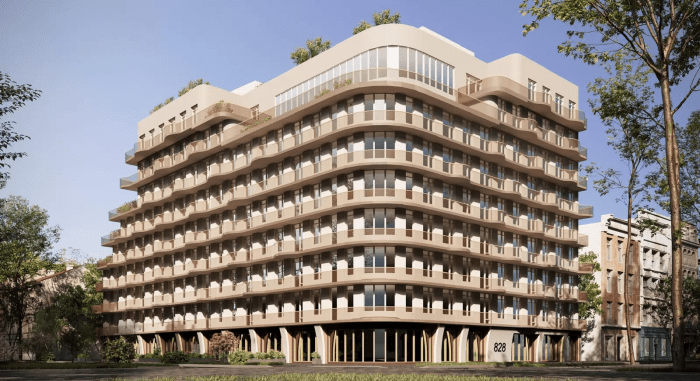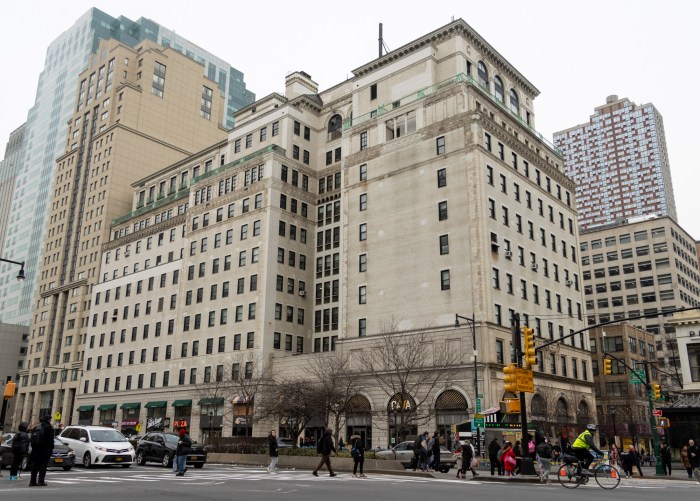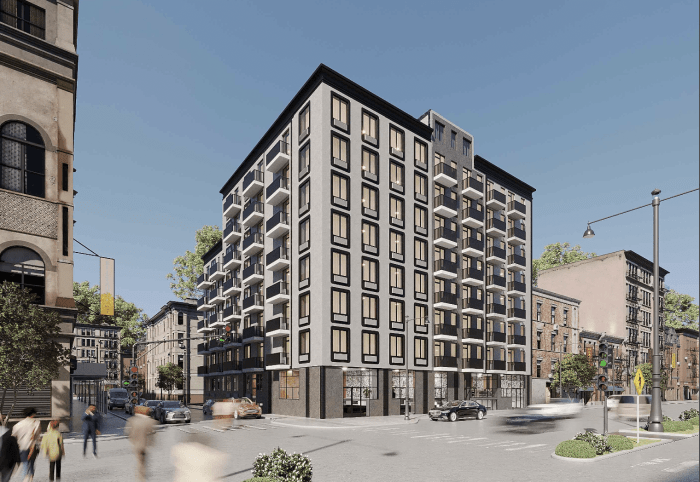A key opponent to the Atlantic Yards mega-development and arena is now pushing for a parking system that would force locals, many of whom opposed the project in the first place, to pay to park in the neighborhoods around it.
Councilwoman Letitia James (D–Fort Greene) is calling for residential parking permits near the Barclays Center arena, requiring area residents to buy permits so that they, not thousands of sports and entertainment fans, will get the first crack at spots on the residential streets near the 19,000-seat arena.
The permits would also generate revenue for the city — which makes it doubly controversial.
“It’s highway robbery!” said Patti Hagan, a longtime arena and project opponent who lives nearby on St. Marks Avenue. “How many times are we going to get shellacked for this thing?”
James said the yet-to-be-determined fee associated with a residential parking permit was a necessary evil that would mitigate the space crunch after the arena is completed in mid- to late 2012.
“During discussions about Atlantic Yards, the Bloomberg administration made a commitment that Prospect Heights would be a likely candidate for residential parking permits,” James said. “I’m pushing for it.”
She added that a permit system would not guarantee every resident in Prospect Heights a parking space, but it would give locals parking priority. A system proposed by the mayor in 2008 set aside regular hours when only permitholders can park. Under such a plan, arena-goers could also park on those streets, but the vast majority of spaces would already be occupied by locals with the permits. Such a system would also discourage commuters who drive to residential neighborhoods, park near subway stations, and then continue their trips into the city via trains.
In Chicago, parking permits for residents around Wrigley Field pay $25 annually for “reasonable access to parking” near the fabled ballfield that everyone calls the Friendly Confines.
Having to pay to park by the controversial Atlantic Yards project site is another matter, entirely.
“The city does whatever it damn well pleases!” said Hagan. “People should be allowed to park where they live without having whomever the arena brings in taking their spaces.”
Hagan said that a free residential parking permit would be much more palatable for the neighborhood, but James has pledged that her program would accommodate car owners on fixed incomes, as well as visitors to the neighborhood.
The proposed 16-tower, 6,430-unit, arena, residential and commercial Atlantic Yards project includes 3,670 parking spaces that will be “sufficient to accommodate all of the anticipated demand from the proposed project’s commercial and residential components, as well as a portion of the demand from the proposed arena,” according to the project’s environmental impact statement.
The environmental review also estimates that as many as 2,531 cars, 412 taxis and 80 trucks will come and go from the project site, mainly before and after basketball games.
The last time such a residential parking program was on the radar citywide was in 2008, when Mayor Bloomberg proposed such permits as part of his larger congestion pricing legislation, which bombed at both the local and state level.
Under Bloomberg’s proposal, community boards would define the times and spaces that would require residential permits. The proposal also said that curbside regulations would be limited to very specific times and places.
State Sen. Daniel Squadron (D–Brooklyn Heights) and Assemblywoman Joan Millman (D–Carroll Gardens) also co-sponsored a bill for residential parking permits last year that was meant to alleviate parking woes, though it bombed along with Bloomberg’s larger congestion pricing plan.
According to a spokesman for the Department of Transportation, any residential parking permit program would require state legislation to be implemented.
But James said that the city’s legal team was examining the possibility of bypassing the need for state legislation by designating the residential parking permit plan as a “pilot program.”






















